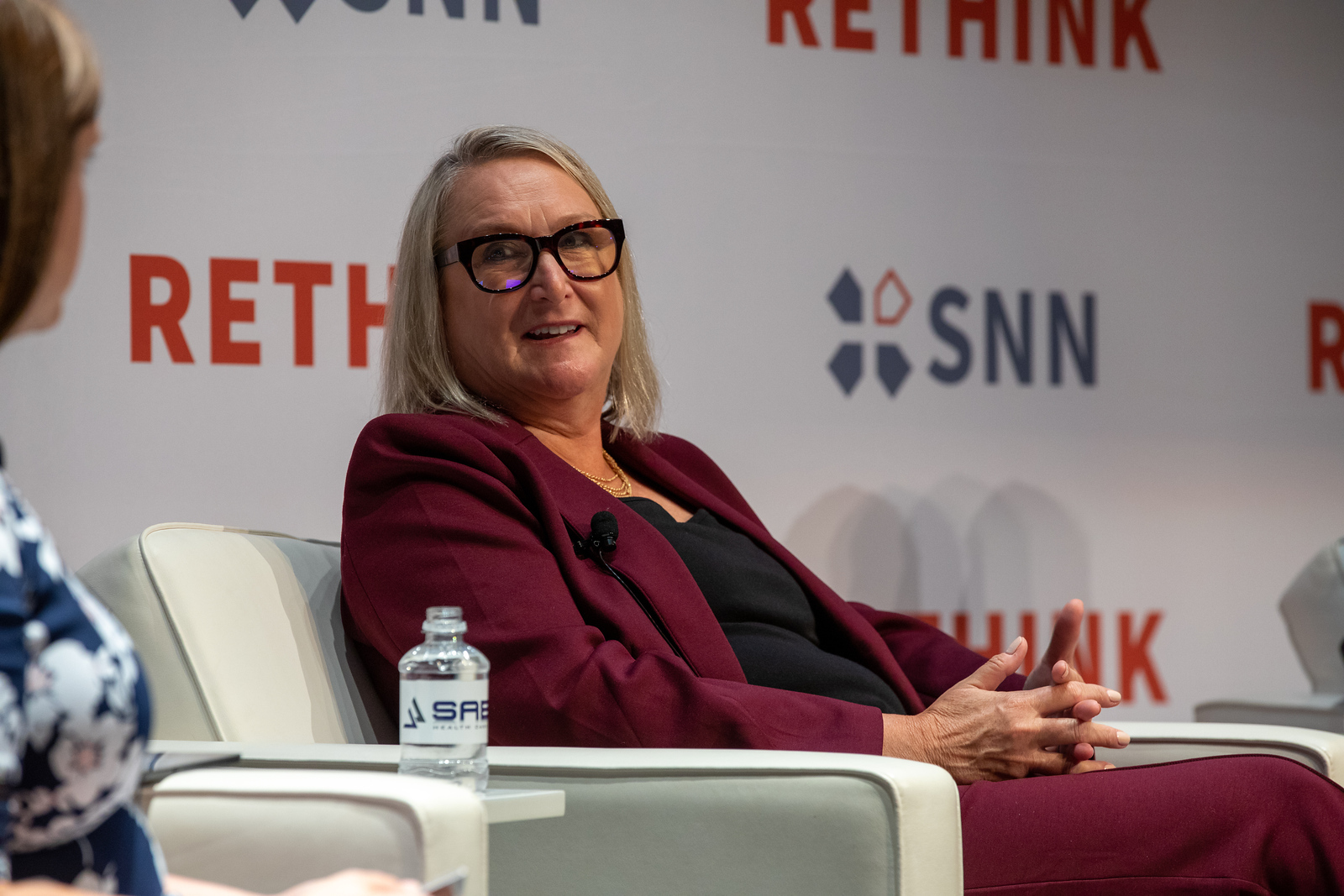
As Trilogy Health Services has grown from two facilities to 127 since Leigh Ann Barney came on board, the senior care company has continued to scale its business by being “strategically opportunistic.”
What that means, according to Barney, is that Trilogy has acquired or built buildings by following the organization’s core tenants: Offering care across the continuum, being customer service and hospitality focused and bringing those aspects into all levels of health care and staying within its Midwestern footprint.
“We’ve stuck to that strategy, but when opportunities come up that fit that strategy we’re opportunistic,” Trilogy’s CEO said on a panel at the National Investment Center for Seniors Housing & Care (NIC) Fall Conference.
Trilogy specifically operates in Kentucky, Indiana, Ohio and Michigan. Opportunities have come up in other states but those were ultimately declined because they did not fit within their desired geographic area, Barney said.
“We know this is what we do, what we do well, and if we start straying from our overall vision and strategy, then it could start to fall apart,” she added.
Trilogy’s approach mirrors that of several operators who no longer see a more compact footprint as a bad thing. For example, companies like Genesis HealthCare and Consulate Health Care, who were once seen as skilled nursing giants, have also recently downsized and moved toward a more market-focused model.
Steady growth
With the parameters in mind, Trilogy’s growth path has remained steady, according to Barney.
Across all care types Trilogy has historically gravitated toward developing buildings over acquiring facilities, but over time that has changed slightly as each of the four states where they operate have put moratoriums or certificate of need (CON) hurdles in place.
In some instances, when immediately building is not the available option, Barney said Trilogy has used a strategy called “worst to first” where they buy a distressed property to operate for a period of time while building new.
As a former operator herself, Barney prefers developing a property from the ground up rather than taking over an acquisition as changing the processes and reacclimating the staff can take a considerable amount of time — sometimes up to one year.
“From that operations perspective, you build the team with a new building and you build your culture and your systems and your policies, and nobody comes and says, ‘Well that’s not the way we do it,’” she said on the panel.
Trilogy has also expanded into other service lines such as Synchrony Health Services. which includes the following brands under its umbrella: Synchrony Pharmacy, Synchrony Rehabilitation, Synchrony Wellness Pharmacy and Synchrony Lab.
The ancillary services business was originally created in 2019 to boost “clinical excellence” via Trilogy-owned pharmacy, therapy and other clinical services.
‘Thousands of culture officers’
Ultimately scaling business operations don’t happen at the level Trilogy has seen without buy-in of company culture.
For Barney, the biggest action item in her role as CEO is to maintain the culture. And that doesn’t come from hiring a single chief culture officer — she has thousands.
“So the biggest piece I think about is you can’t have one person leading the culture of the organization. … I can’t have one chief culture officer, I have thousands of culture officers and you do that by investing in training and education,” she said on the panel.
Trilogy has focused closely on its training and education, both when it comes to clinical skills and other “soft skills.”
“In our business we put a lot of focus on training on the technical skills and competencies, especially from a skilled nursing side that we do, we have a lot of training on clinical competencies. But many organizations do not invest the resources into the soft skills, and those are those cultural components like servant leadership,” she added.

